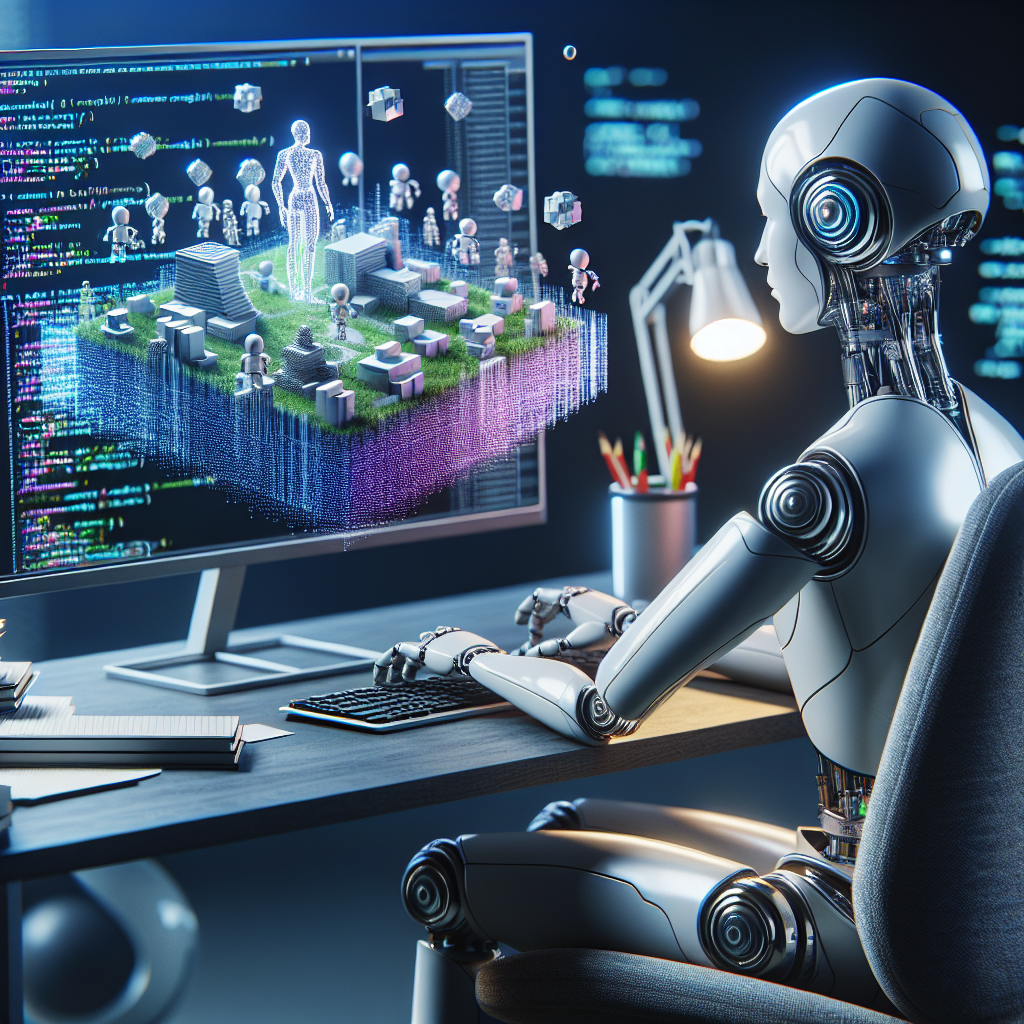Artificial Intelligence (AI) has become a key component in the gaming industry, with many developers using AI to enhance gameplay, create more immersive experiences, and improve overall player satisfaction. However, with the increasing use of AI in gaming, there are also risks and challenges that developers need to be aware of. In this article, we will explore the impacts of AI on game development and discuss the potential risks associated with its use.
Impacts on Game Development:
AI has had a significant impact on game development, allowing developers to create more dynamic and engaging gaming experiences. AI can be used to create more realistic and intelligent non-player characters (NPCs), improve enemy behavior, and enhance overall game mechanics.
One of the key benefits of AI in gaming is its ability to adapt to player behavior and preferences. AI algorithms can analyze player interactions and adjust game difficulty, pacing, and challenges accordingly. This dynamic approach to game design can help create more personalized experiences for players and keep them engaged for longer periods.
AI can also be used to enhance graphics and visuals in games. AI-powered algorithms can improve rendering, lighting, and animation, resulting in more realistic and immersive environments. This can help create a more visually appealing and engaging gaming experience for players.
Additionally, AI can be used to automate certain aspects of game development, such as playtesting, bug fixing, and level design. This can help speed up the development process and reduce costs, allowing developers to focus on creating more innovative and creative games.
Risks of AI in Gaming:
While AI has many benefits in gaming, there are also risks and challenges that developers need to consider. One of the main risks is the potential for bias in AI algorithms. AI algorithms are trained on data, and if the data is biased or incomplete, the AI system may make inaccurate or unfair decisions. This can lead to issues such as discriminatory behavior, unfair advantages, and negative player experiences.
Another risk of AI in gaming is the potential for AI to become too powerful or unpredictable. AI algorithms can learn and adapt on their own, which can lead to unexpected behavior or outcomes. This can make games more challenging or frustrating for players, and may result in negative feedback or backlash.
Furthermore, there is a concern about the impact of AI on game design and creativity. As AI becomes more prevalent in game development, there is a risk that developers may rely too heavily on AI algorithms to create content, leading to a lack of originality and innovation. This could result in a homogenization of game experiences, with games becoming more formulaic and predictable.
FAQs:
Q: Can AI be used to cheat in games?
A: While AI can be used to enhance gameplay and create more challenging opponents, there is a risk that AI algorithms could be exploited to cheat in games. Developers need to implement safeguards and security measures to prevent cheating and ensure fair play.
Q: How can developers mitigate the risks of AI in gaming?
A: Developers can mitigate the risks of AI in gaming by being transparent about the use of AI algorithms, testing and validating AI systems thoroughly, and monitoring AI behavior in real-time. It is also important for developers to prioritize fairness, diversity, and inclusivity in AI algorithms to avoid bias and discrimination.
Q: Will AI replace human game developers?
A: While AI has the potential to automate certain aspects of game development, such as playtesting and bug fixing, it is unlikely to replace human game developers entirely. AI can enhance and streamline the development process, but human creativity, intuition, and expertise are still essential for creating innovative and engaging games.
In conclusion, AI has the potential to revolutionize the gaming industry, but there are risks and challenges that developers need to be aware of. By understanding the impacts of AI on game development and addressing potential risks, developers can harness the power of AI to create more immersive, engaging, and innovative gaming experiences for players.

